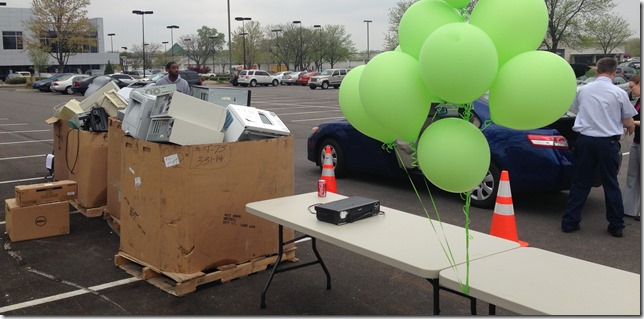I volunteered to be a mentor for the latest session of CodeLouisville, on the .Net side.
No big deal, I thought.. and then, TreeHouse was unable to get their Entity Framework videos ready on time, so we, the mentors, volunteered to pick up the slack.
Naturally, I don’t do well when given an open ended problem, so I went into crazy-detail-mode. I paid $15 for a 1-year subscription to https://screencast-o-matic.com/home (VERY GOOD), and I started making videos.
And I ran out of steam. Because, of course, I chose the slow, measured, one-thing-at-a-time approach, and I created far too much work for me to do myself.
Luckily, two other mentors suggested that we do X for our mentoring session – so if what I was doing was from top down, they were going bottom up. Basically, show the fast way to create an MVC website, Code First, Scaffold, and let the students backtrack from there.
This worked VERY well. It boot-kicked the students into effective land. At least one of them showed me some working code in their project in the same week.
Lessons Learned
I am too. detail-oriented for my own good.
When in doubt, ask people what they need.
Sometimes, you just have to show the finished product and NOT explain everything, then go back and explain what is needed. Its okay, people are resilient, they will survive ![]() .
.
I like screencast-creation, but not more than a few hours a week: For a 20 minute screencast, it takes about 40 minutes of recording, about 2 hours of editing, another 20 minutes of rendering and uploading. So basically plan on 4-5 hours for a 20 minute video on a topic. Thus, I can probably sustain generating 10 minutes of educational content a week.
What Did I make
This is a walkthrough of LocalDB: https://docs.google.com/document/d/1tTDKTQsfGPr_nFSbEifGQRc8dc-FfrxbPUfnc7CyKoc/edit?usp=sharing
This is a walkthrough of C# talking to SQL: https://docs.google.com/document/d/1lSt-C5-L3VwLLGE6oJO3A_UOpIu2lYA-EWMhzAo-Ye0/edit?usp=sharing – it has links to 5 videos, and (eventually) links to code in github.

 A while ago, I was a mentor for
A while ago, I was a mentor for  So here’s the pitch:
So here’s the pitch: 

 It turns out this is the work of
It turns out this is the work of 
















![Samsung_ATIV_Smart_PC_Pro_700T_35511640_06_610x436[1] Samsung_ATIV_Smart_PC_Pro_700T_35511640_06_610x436[1]](http://geekygulati.files.wordpress.com/2013/11/samsung_ativ_smart_pc_pro_700t_35511640_06_610x4361_thumb.jpg)

